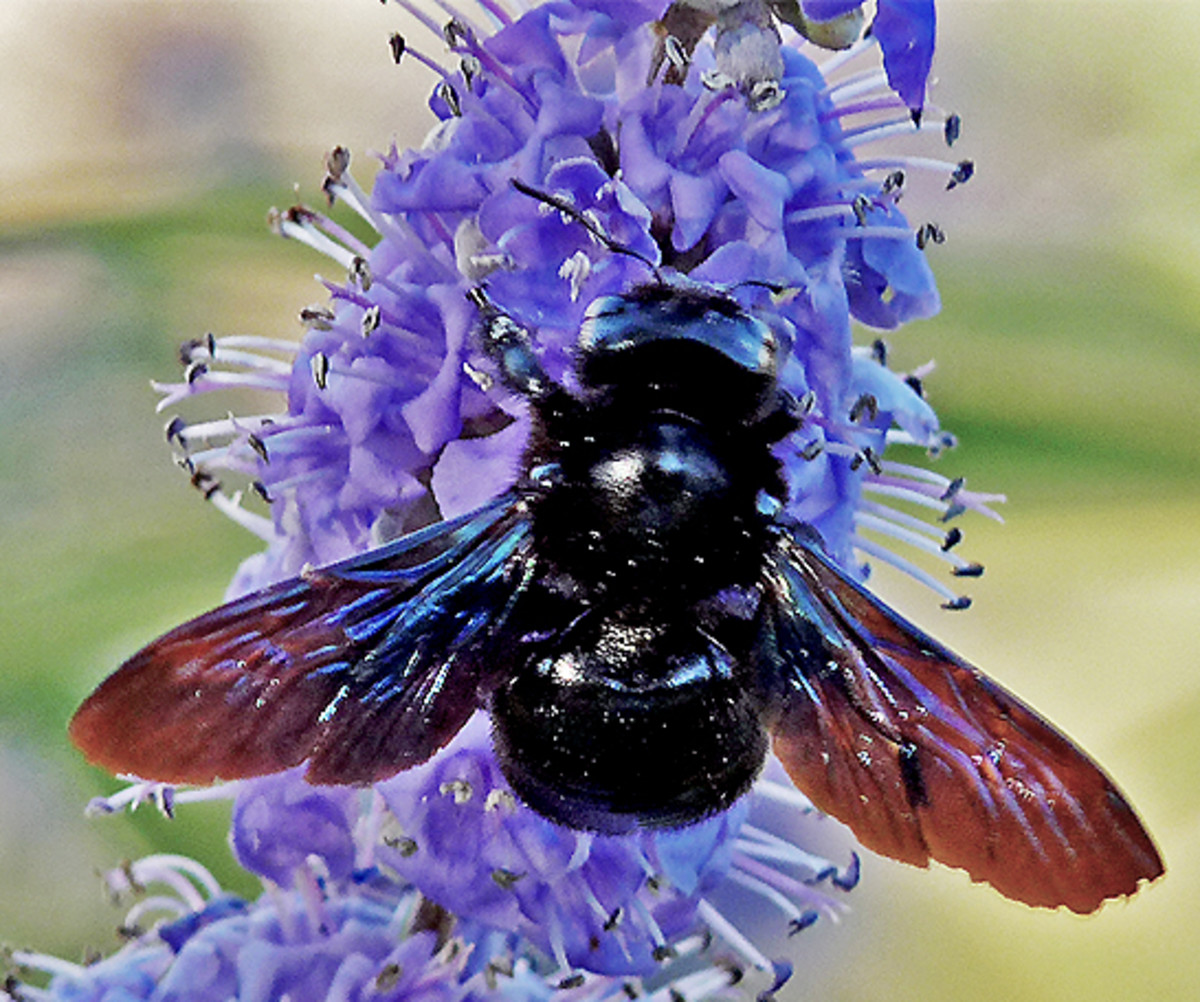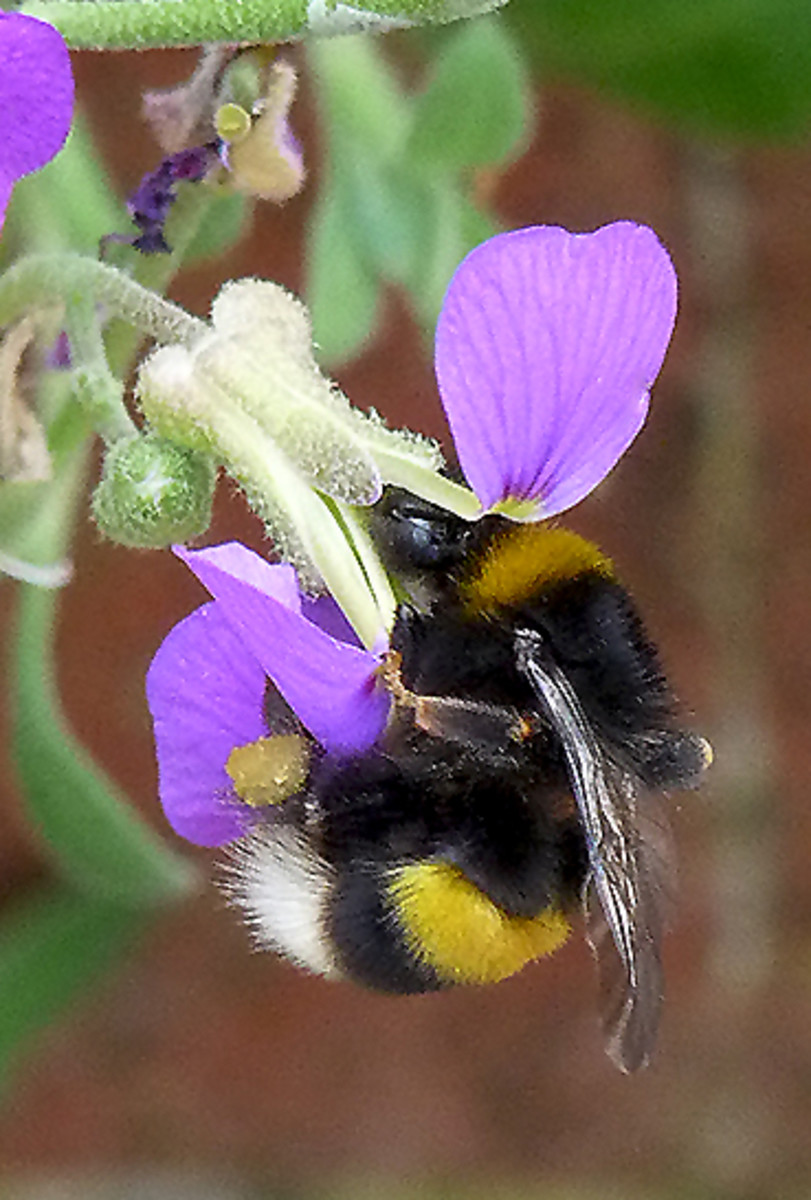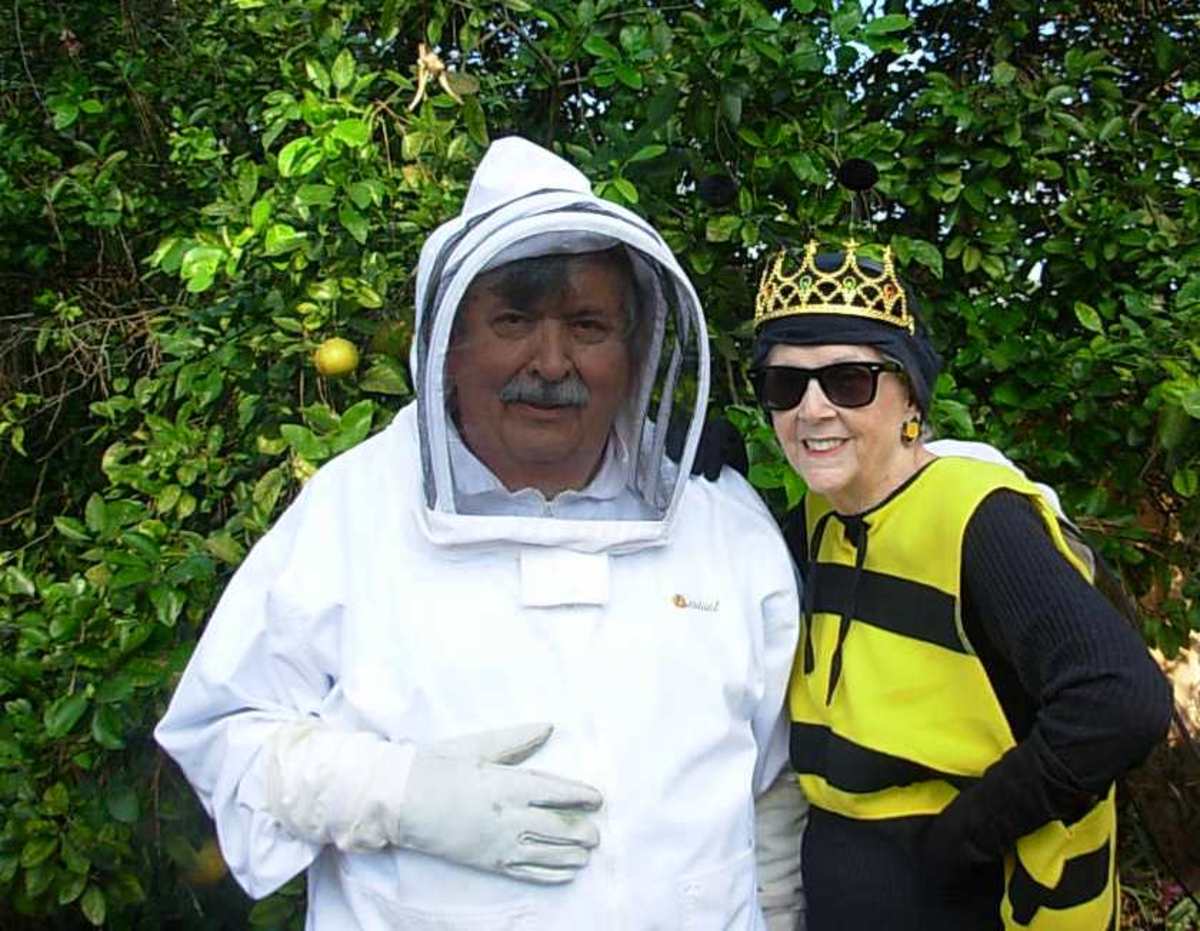Buying Honeybees, The Options
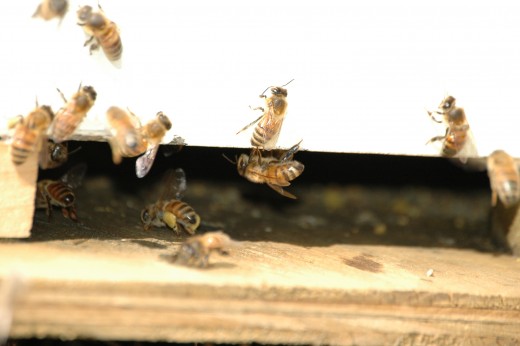
To start beekeeping, you have to have bees. There are four main ways to obtain them:
1) Feral Swarm: This is the least expensive way to get bees, free is as cheap as it gets; it is also the least reliable. You might wait all spring and never get a chance to catch a swarm. Also, you don’t know anything about the genetics of the bees that you catch.
2) Established Hive: Just what it sounds like, a full blown colony of bees with a laying queen and several frames of brood. The advantage of buying an established hive is that you might make some honey your first year. The disadvantage is that this is the most expensive way to get bees. Price varies with the time of year and the size of the hive. Bees in the spring, before things start to bloom and the nectar starts to flow, are worth more than bees in the fall that will have to be overwintered.
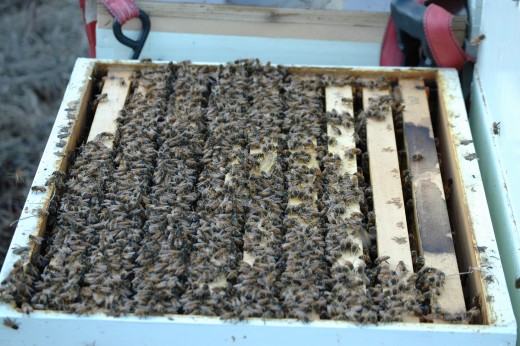
3) Nuc: Short for nucleus colony, this is a mini-colony, usually made up of five deep frames. A good nuc has a minimum of two frames of brood, a well established queen, and three or four frames of bees. The advantages of a nuc are that you get the full age range of bees, and the brood that will soon be hatching. You can see that the queen has been accepted by the colony and you can examine her laying pattern. Put a good nuc on a nectar flow and its population will explode. In some areas of the country, if you can get a nuc early enough in the spring, it might make some honey the first year. If there is a disadvantage to a nuc, it is that most are made up of deep frames. If you have chosen to use all medium equipment, then you will have to start with a deep box for you nuc and go through a season long process of moving your bees into medium equipment. It can be done, I have done it, but it is a hassle. Medium nucs, when available, cost the same amount as deep nucs, but, because the frames are smaller, you are getting fewer bees for your money.
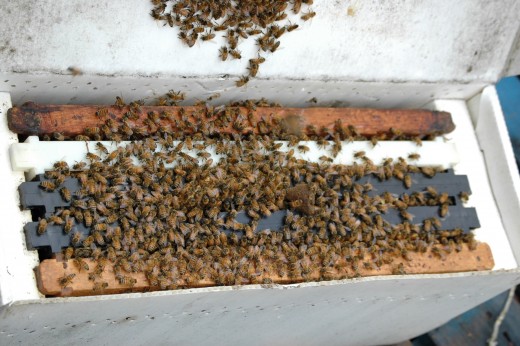
4) Package: This is the least expensive way to purchase bees. Package bees are literally shaken from the frames of an established hive into a box with wire mesh sides. A queen in her own small cage is hung inside the box so that she is surrounded by the other bees. Lastly, a can with small holes in the lid is filled with sugar syrup or corn syrup and placed in the box so that the bees have something to eat during their confinement. Packages are sold by weight, with three pounds being the most popular size.
Packages are readily available and can be shipped through the mail. They don’t get started as quickly as a nuc, because there is no brood. The population of a hive established from a package will have an initial drop as the original bees die before the first new bees have hatched. You don’t get to inspect the queen’s laying pattern and there is no guarantee that they will accept the new queen, although, after having been around her for several days in the package box, they usually do.
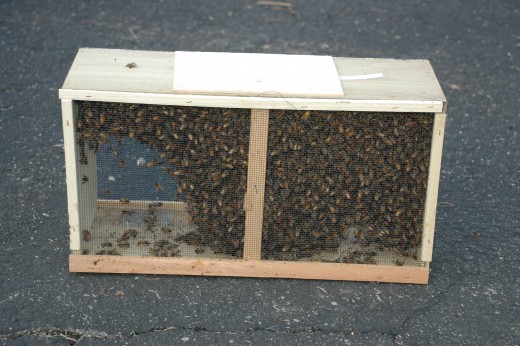
So which option is the best?
Any of the above methods of obtaining bees will work, but for my money, a nuc is probably the best way to go. Give it a nectar flow and room to expand and a nuc will take off. Hopefully, since the queen is already in the nuc and laying, I avoid some of the queen problems that I might have with a package. This is not to say that you can’t get a good start with a package, thousands of successful colonies are started every year with packages, but I lean toward a nuc, if available.
When Should I Get My Bees?
Get your bees in the spring. In most parts of the country, April is the best month to establish a new colony; lots of plants are blooming and there is plenty for the bees to eat. If you live in one of the southern states where commercial beekeepers go to winter their bees, you might be tempted to buy bees in the fall when they are less expensive. This isn’t a good idea your first year. Start in the spring when you have the greatest chance of success. Bees cost more in the spring, but you have several months to learn and gain skill before dealing with the subtleties of overwintering.
While you will receive your bees in the spring, you need to order them in the fall. Good bee producers almost always have a long waiting list of customers, especially for the April and early May delivery dates. Plan ahead and order early.
- Why Keep Bees: Four Good Reasons Besides Pollination and Honey
Most people, even those that don’t want to keep bees, know two good reasons why someone would, pollination and honey. These are the only reasons that most beekeepers need, but if you are on the fence about whether or not to give beekeeping a go,... - Four Books For New Beekeepers
The aspiring beekeeper has many choices when it comes to books. Among books that cover the technical aspects of beekeeping, two are real standouts. The Beekeeper’s Handbook by Diana Sammataro and Alphonse Avitabile, and The ABC & XYZ of Bee... - Beesource.com - Beekeeping resources for beekeepers since 1997!


